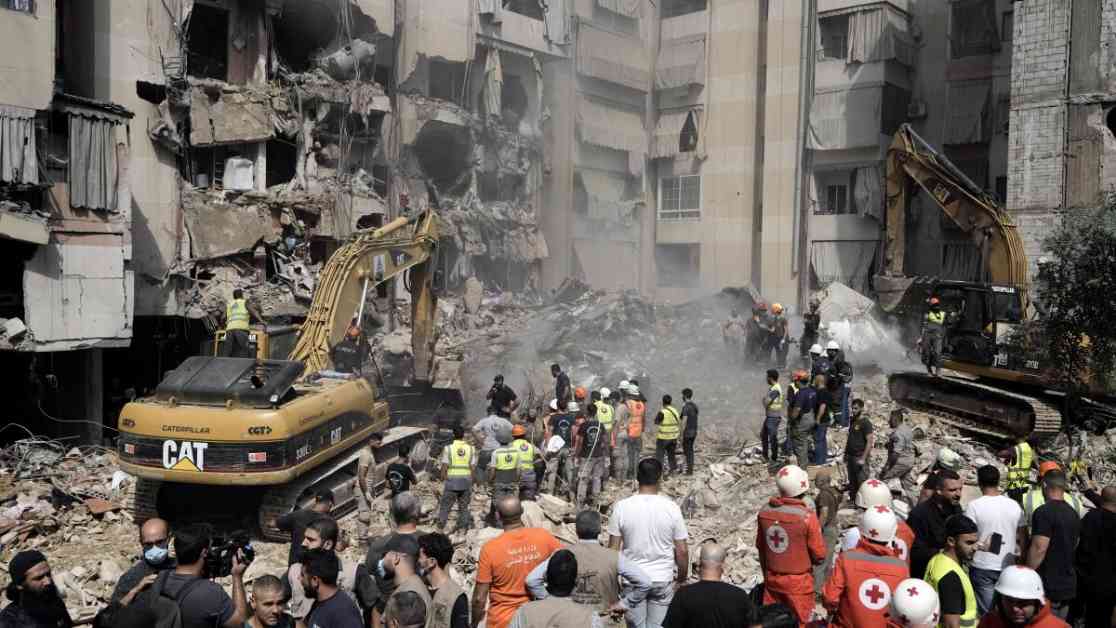Israel and Hezbollah Conflict Escalates
The death toll in Beirut continues to rise as the conflict between Israel and Hezbollah escalates along the Lebanon border. The recent strike in Beirut resulted in 37 casualties, marking it as the deadliest attack on the Lebanese capital in decades. The strike, which hit a crowded suburban block, claimed the lives of seven women and three children, with another 68 people reported wounded. The search for missing individuals is ongoing, and authorities anticipate the death toll to increase as rescue efforts continue.
Hezbollah, a militant group backed by Iran, claimed that 16 of those killed in the strike were their operatives, while others were civilians. Among the casualties was Ibrahim Akil, a senior Hezbollah leader responsible for creating the elite Radwan force. Israel identified Akil and other Hezbollah leaders as the targets of the strike, citing previous attacks on their military personnel as justification. The ongoing tit-for-tat between Israel and Hezbollah has resulted in a series of deadly exchanges, with both sides launching attacks in response to previous incidents.
Impact on Lebanese Residents
The aftermath of the strike in Beirut has left residents in shock and mourning as they grapple with the loss of loved ones and the destruction of their neighborhoods. Families gathered near the blast site, anxiously awaiting news of missing relatives and friends. The scene of rescue workers sifting through rubble and carrying out bodies paints a grim picture of the toll that the conflict has taken on innocent civilians caught in the crossfire.
The ongoing attacks between Israel and Hezbollah have forced tens of thousands of people to flee their homes in Lebanon and Israel, seeking safety from the escalating violence. The displacement of civilians adds another layer of tragedy to an already volatile situation, with many families uncertain of when they will be able to return to their homes and rebuild their lives. The fear of further devastation looms large over the region, as memories of past conflicts fuel anxiety and uncertainty among the population.
International Concerns and Calls for Ceasefire
The international community has expressed growing concern over the escalating conflict between Israel and Hezbollah, urging both sides to exercise restraint and seek a peaceful resolution to the crisis. The United States, European Union, and other key players have called for an immediate ceasefire to prevent further loss of life and destruction in the region. Diplomatic efforts are underway to de-escalate tensions and facilitate dialogue between the warring parties in the hopes of reaching a sustainable ceasefire agreement.
The impact of the conflict extends beyond the borders of Lebanon and Israel, with neighboring countries and global stakeholders closely monitoring the situation. The potential for the conflict to spiral into a wider regional crisis is a cause for alarm, prompting calls for de-escalation and diplomatic intervention to prevent further instability in the already volatile Middle East. The need for a comprehensive and inclusive peace process to address the root causes of the conflict is paramount in ensuring long-term stability and security for all parties involved.



























